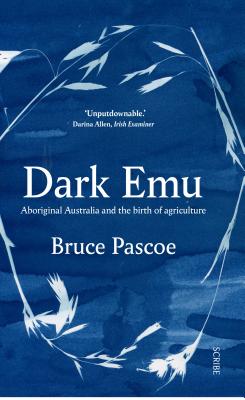
Who were the first humans to bake bread?
If you had asked me a few months ago, I would have probably guessed the Egyptians.
But what if it was the Aboriginal Australians? And not by any small margin. There is evidence to suggest that Australians were cultivating grains and baking bread more than 30,000 years ago, a good 15,000 years ahead of the Egyptians.
In Dark Emu: Aboriginal Australia and the Birth of Agriculture, author Bruce Pascoe writes:
And this baking was not a one-off occurrence. Archeaologists found a 25,000 year-old grindstone at distant Kakadu in the Northern Territory: the bakers of antiquity. Why don’t our hearts fill with wonder and pride?
Why indeed?
As Pascoe illustrates again and again, the Europeans who first arrived in Australia had preconceived notions about the people who lived there. They assumed that Aboriginal Australians were not sophisticated so they conveniently overlooked all evidence to the contrary. He writes:
It is clear from the journals of the explorers that few were in Australia to marvel at a new civilization; they were there to replace it. Most were simply describing a landscape from which settlers could profit. Few bothered with the evidence of the existing economy, because they knew it was about to be subsumed.
The evidence of advanced societies was not hidden away; it was there all along in the many diaries that Pascoe quotes from repeatedly. Aboriginal Australians cultivated fields, constructed large, permanent dwellings, stored large quantities of food and water, and developed ingenious systems for catching fish — all the qualities that scientists use to define advanced cultures. And yet the world today still largely views these people as nomadic hunters and gatherers.
But as we have seen with the Europeans who set foot in the Americas, it was more convenient to assume the natives were nomadic when you were busy stealing their land.
Dark Emu is a fascinating and painful history of Australia. Yet Pascoe did not write this book simply to assign blame, but to point a way to a better future.
For the Indigenous Australians knew quite a lot about gardening, soil management and fire management. While Europeans were importing seeds that were difficult to grow in the country, the locals had cultivated species that thrived, species that could solve significant food and water challenges. The natives used controlled fires as a tool for enriching the soil and preventing more destructive fires — a practice that is now in demand throughout Australia (as well as here in the Western US).
Knowing the truth about Indigenous Australians isn’t just an academic exercise. Learning how they coexisted with the land and the animals poses important lessons for our path towards a more sustainable and compassionate future.
My only issue with this profound book is Pascoe’s insistence that we will always eat meat, and that Australians should turn toward harvesting kangaroos. While I understand his motivations (moving away from conventional animal agriculture), I think he could and should aim higher. Just as it’s vital to understand our history, it’s equally vital to evolve. Just because our ancestors ate meat does not mean our descendants are bound to a similar fate.
Dark Emu
Scribe Publications
John is co-author, with Midge Raymond, of the Tasmanian mystery Devils Island. He is also author of the novels The Tourist Trail and Where Oceans Hide Their Dead. Co-founder of Ashland Creek Press and editor of Writing for Animals (also now a writing program).

